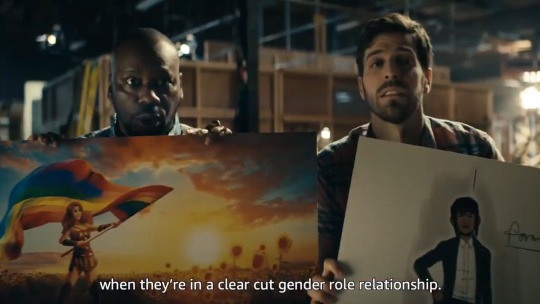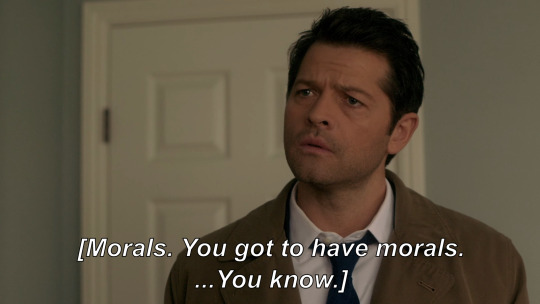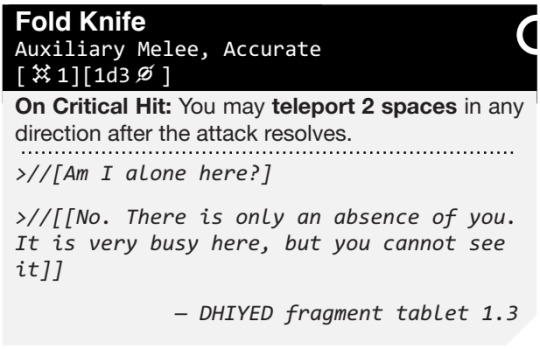#internet-marketing-examples
Explore tagged Tumblr posts
Text
If You Are Doing Online Marketing

But choosing the best course is somewhat challenging. It will also cover a little history of this field. No sign up fees, registration fees, or submission fees are required. Stop! Before you even consider dropping out of the online marketing "game", consider whether you have an action plan for success. SEM is a combination of paid or sponsored listing and organic results in search engines e. Along with this one has to monitor the apparent trends such as which pages are visited most frequently thus planning accordingly for the promotion of business. This highlights the product in the competitive world. The small business houses will find their own segment of consumers with the increased popularity of web clusters and widgets in the future. Gates points out precisely how in the future decade the companies who have the best and the most content could be the ones to reign over the online markets Many people are making very significant amounts of money from internet marketing so keep in your mind just what your success will mean to both you and your family. You will have tough days and exasperating failures at times but, if you are able to accept these and be prepared to learn from your mistakes, success will eventually come. You can only reap what you sow On the other hands, it will be more time and labor saving as well. If newspaper and TV are your Advertising tools, it may take a lot more steps to know how your customers think about your product. This could be a simple report, or you could actually have a physical product that you sell online He was in New York during a bitter cold spell and saw a long line of people ("the crowd") waiting for cabs at the airport. The foundations of success in any business lie in the mindset of the budding entrepreneur. You still have to learn how to sell. You wouldn't do that, now would you? I know I have, and the results were NOT pretty. There are a lot of internet marketing training programs these days that teach people to get started with affiliate marketing and just "share" their link on Facebook, forums, and search engines
youtube
#internet-marketing-inc-infographic#internet-marketing-course#internet-marketing-ninjas#internet-marketing-expert-group#internet-marketing-tree#internet-marketing-salary#internet-marketing-for-dummies#internet-marketing-examples#internet-marketing-gold#internet-marketing-specialist#internet-marketing-inc#internet-marketing-near-me#internet-marketing-association#internet-marketing-solutions#internet-marketing-service-meaning#internet-marketing
1 note
·
View note
Text
The Evolution Of An Internet Marketing Guru

To make your business website stand out amidst competitors and make it accessible to potential online buyers, equipping it with search engine optimization measures is very important. Without adequate and the latest Internet marketing methods, a website may get lost in the ever growing crowd of websites that belong to the same niche. To optimize the website in the right magnitude, a suitable agency well versed in the job should be hired. At times, modifications to the site may be necessary to cater to the current trends. In such situations, the entity you hired should be available to make necessary changes to the website to optimize it correctly. Nowadays, a lot of firms offer online web marketing services for clients and you need to select a professional SEO Company. Digital marketing industry is very volatile and new trends replace older ones frequently. Therefore, you need to hire an agency that keeps itself updated with the latest industry trends. What is hot in the industry may become obsolete a few months later. Search engine optimization is an ideal and systematic method for business websites to earn excellent profit and sales leads by achieving greater visibility on the World Wide Web. Websites that are effectively optimized rank high in search engine result pages. A professional internet marketing company implements innovative marketing plans and sales promotions to make your online business successful. Online marketing services include marketing of articles/blogs, building of effective links through social networking sites and email marketing. This article provides certain useful tips for finding the right online marketing company for your website enhancement purposes. Always hire the best company that can provide customized services catering to your specific requirements. Check the credibility of previously completed projects including keyword analysis, page optimization, natural build linking and more. Also, confirm whether the work portfolio of the company satisfies your requirements. The right viral marketing company can bring you many tangible benefits. A professional, experienced internet marketing firm can provide value-added services to its clients. The SEO professionals in such a company keep themselves updated with the latest trends of online marketing to provide premium SEO services. The above listed tips for finding the right internet marketing company should help you in identifying the right provider for your search engine optimization requirements. It is not just one strategy that works, but there are combinations of efforts that bring results overtime in the world of Internet marketing. For example, search engine optimization would promote your search engine rankings for the selected keywords. Pay per click would attract traffic from where you don't even have your presence and it would be effective right from the day one. Social media will create a fan following and build a long term clientele for your business. Micro-communities marketing will attract customers from the smaller but organized online communities. Offline marketing will increase the hits from outside the virtual world and would add local audience to your website. For example, you can advertise your website URL in print media or through mobile phone sms marketing. You can also place banners at prominent locations. You can paste car stickers and window stickers for everybody to notice your URL. All these kinds of strategies (except the offline ones) for Internet marketing are successfully implemented by the Internet marketing companies that employ all the diverse techniques. So the results achieved are nothing short of a miracle. You cannot achieve those results by hiring an in house team or by doing it yourself. In case you are able to match the results for Internet marketing then the budget of it would skyrocket to three to four times of what an SEO company would charge you. The Internet is huge. No one will deny that, and the role it plays in business is becoming more and more important as well. It is no longer sufficient to do business offline, if you want to succeed in this technology driven new age, then you will have to do a bit of Internet marketing. There are a number of Internet marketing services available to you, whether it is in the form of companies that specialise in it, or various standalone apps or tools that, if you have the time and knowledge to do so, can provide information on number of visitors, clicks, purchases and such forth. If you are looking for Internet marketing services for your business then, what aspects of it should you particularly focus on? Design will be more important than ever this year. It could be a wise idea therefore, to look for companies specialising in internet marketing services that also offer web development and design as part of the service.
youtube
#internet-marketing-inc-infographic#internet-marketing-course#internet-marketing-for-dummies#internet-marketing-ninjas#internet-marketing-expert-group#internet-marketing-examples#internet-marketing-salary#internet-marketing-tree#internet-marketing-gold#internet-marketing-specialist#internet-marketing-companies#internet-marketing-association#internet-marketing-near-me#internet-marketing-service-meaning#internet-marketing-degree#internet-marketing
0 notes
Text






Kripke knew. that’s the post. Kripke knew
#i.e. the Brave Maeve subplot parodied many such examples of rainbow marketing/erasure but that afflicting his own brainchild? very likely#(added the other images in this post to note that the late-seasons writers/actors Knew and had their own pieces to say)#(he was Executive Consultant (whatever that means lol) while they were running such unsubtle commentary/The Boys started it checks out)#(AND ''clear-cut gender role relationship'' just pwn'd assimilationists who invalidate DeanCas for threatening their sensibilities there)#(yes I'm Internet Old enough to say pwn'd)#supernatural#spn#spn writers#eric kripke#network fuckery#spn finale mess#mine
7 notes
·
View notes
Text
lowkey, I don't think I can ever watch the first Frozen movie again. I don't think it's bad or anything, but when I watched it for the first time last year, I felt like I was having war flashbacks every time one of the songs came on lol
#frozen#late night rambling#this isn't me hating on the movie btw#i know it *sounds* like i am but i actually like both movies#i think i like the second one more but the first isn't terrible#idk frozen and encanto have been on my mind for the last couple days#but like#remember how insanely *everywhere* frozen was when it came out?#i went into the movie - *nine years* after it first released - and i knew the whole plot without ever actively seeking out any info on it#i don't think that's ever happened to me before#like#take star wars for example#i know vader is luke's father and leia is his sister because *everybody* knows that duh#but aside from that i don't know shit about *any* of those movies. even after watching the family guy trilogy#but frozen? i knew that shit back to front because of 2013-2014 internet#i think it'll permanently affect my feelings on the first movie#and not for the better unfortunately#the marketing for the second movie was thankfully dialed back enough that i went in completely blind
7 notes
·
View notes
Text
Not to be that person but most of those things were already happening before tiktok became popular? The homogenization of the internet, the shortening of attention spans (though I'll admit that tiktok has probably exacerbated this issue), increasing anti-intellectualism, pirating sites being exposed, racist algorithms, popularization of anti-aging markets, dangerous teenage challenges, filming strangers in public, etc. All of these things were already happening in abundance on Instagram, YouTube, and yes, even our beloved tumblr. Tiktok did not invent these problems, it arguably hasn't made them any bigger, and people complain about them now just like they did back then. These are social media problems, not tiktok problems.
hating tiktok is not a "back in my day" type thing. tiktok is objectively affecting other social media platforms in detrimental ways. ux elements are being stripped and everything has to have a fucking short video clips function. it's rampant homogenization and it's a problem
#internet#did we forget the cinnamon challenge?#did we forget the twitterification of social media?#did we forget all the outrage about vloggers and internet randos filming people in public?#remember how lets play videos broke youtube because its algorithm only pushed short videos before that point?#why do we so fondly remember the 7 second videos of vine but curse the shortform videos of tiktok?#the shortening of attention spans has been happening for a long while (i think the lolrandom phase of internet humor is an example of this)#and maybe tiktok is speeding that up? maybe? but thats honestly the only one of these#that are genuinely unique to tiktok#i think the real complaint is just children on the internet now that the internet has become marketable#but the internet has always been damaging to children on some level. tiktok is not a new phenomenon.
86K notes
·
View notes
Text
How to Grow Your Business with the Help of Digital Marketing

Grow Your Business Using Digital Marketing
In a scenario where everyone's world is moving swiftly with the digital revolution, leveraging digital marketing is the only way to grow your business. When you've just started a small business or are an old establishment, digital marketing can help grow your business by taking it to a wider audience, ensuring more engagements, and making it sell more. Learn how you can harness digital marketing for your business growth here.
1. Develop a Strong Online Presence
Your website is often the first contact point for a customer, so make sure it is user-friendly, mobile-responsive, and SEO-optimized. An organized website with content will most certainly be sought out and bring in organic traffic.
2. Use Social Media Channels
An ideal social medium which is not mentioned is the powerful Facebook, Instagram, LinkedIn, and Twitter others are the means of communication with your target audience uncomixmes to revolving around social Medias which are considered as uncamonademand to work together without unity is really name it them useenables to. Develop some stuff that will attract the right audience.
3. Develop Content Marketing
Quality content truly is the way to be an expert in your field.. Blogging, creating videos, or podcasts are fantastic ideas to provide useful insights towards your audience. No, not to just boost your SEO, but to make your brand the authority, the one that your audience turns to.
4. Email Marketing
E-mail marketing is one of the most effective forms of digital marketing. Create your mailing list and start sending a regular newsletter full of promotions, updates, and good content. Personalization can work miracles for engagement and conversion rates.
5. Go through Paid Advertising
You can even use those same ones to target those ads to specific placements on Google Ads and those networks.. PPC's though because you can target specific ones to audiences and you get the traffic you need on your site right when you want it simply because you "push" it right then.. Never forget to measure and track how your ad is performing to maximize return on investment.
6. Analyze and Adapt
Leverage analytics tools for monitoring your marketing endeavors. The website traffic, conversion rates, and other metrics from social media engagement can be of great help when peering into what works and what doesn't.
Periodic adjustments based on data ensure continuous growth.
7. Engage in Online Communities
Engagements in forums or online communities based on your industry will increase your visibility and credibility. Share what you know, and be a regular contributor, positioning your brand as the thought leader within your realm of expertise.
Conclusion
Digital marketing is a pretty strong outlet for the change of your business. On the company's online presence, content value, and interactions with your audience should be focused on for long-term growth and success. All the risks and challenges may be worth embracing the digital world.
for more details visit:-http://digitalstudios.rf.gd/
mail id:- [email protected]
#digital marketing#digital marketing 2023#learn digital marketing#digital marketing basics#digital marketing course#what is digital marketing#digital marketing tutorial#digital marketing examples#digital marketing training#digital marketing explained#simplilearn digital marketing#digital marketing in 5 minutes#digital marketing explainer video#online marketing#internet marketing#digital marketing tutorial for beginners#marketing 4.0
0 notes
Text
At its core, cloud computing refers to the delivery of computing services—such as storage, processing power, and software—over the internet, rather than on local servers or personal devices. In essence, it allows users to access and utilize computing resources on-demand, without the need for extensive infrastructure investments.
#digital marketing#digital marketing 2023#learn digital marketing#digital marketing basics#digital marketing course#what is digital marketing#digital marketing examples#digital marketing training#digital marketing tutorial#digital marketing explained#simplilearn digital marketing#digital marketing in 5 minutes#online marketing#digital marketing explainer video#internet marketing#digital marketing tutorial for beginners#marketing 4.0
0 notes
Text
Yeah the comics are more diverse. And then it all gets sanitized out of the actual movies and exists as subtext at best. Marvel has a long track record of erasing the diversity that exists in the comics, so why are we holding up the comics as evidence that the movies are diverse? To give a massive corporation a pat on the back for making plausibly deniable gay jokes?
I like subtext as much as the next guy, but we as fans have got to stop acting like it's an attack on our headcanons when someone points out that that subtext never rises to the level of actual text.
Which is what the article you screencapped out of context is actually about by the way. You don't even actually have to read it to know that, if you scroll down to literally just past where you've cropped this is the subheading:

click on the image if you want to actually read it rather than taking the words of a gay man out of context to misrepresent him as homophobic. You can agree or disagree with his point, but at least actually engage with it instead of just making stuff up.
This article isn't even about the latest movie by the way, it's about the first deadpool movie, it was published in 2016. I haven't seen deadpool and wolverine, but I have seen the first deadpool movie, and it never delivered on the promises of "pansexual deadpool" nor did the second movie deliver on the implication that deadpool would get a boyfriend, so I'm sorry if I'm skeptical about deadpool 3's romcom marketing but I've seen this before and marvel isn't getting progressive points from me for implying their characters are gay as a literal joke.
Sorry if this got sent to you out of context and misled you op. I really hope that's what happened, because if you found and chose to share this screenshot yourself, then this was blatant and unapologetic lying on your part, and that's not cool.

fascinated by people claiming that deadpool is straight meanwhile here's how they marketed Deadpool 3:



#take an article about queerbaiting marketing and respond with more queerbait#no one's coming for your gay ships this is about predatory marketing from big studios#I'm sure there are plenty of examples of dudebros on the internet beig dipshits about queer deadpool#this is not one of them
42K notes
·
View notes
Text
there is no ethical consumption under capitalism
Years ago now, I remember seeing the rape prevention advice so frequently given to young women - things like dressing sensibly, not going out late, never being alone, always watching your drink - reframed as meaning, essentially, "make sure he rapes the other girl." This struck a powerful chord with me, because it cuts right to the heart of the matter: that telling someone how to lower their own chances of victimhood doesn't stop perpetrators from existing. Instead, it treats the existence of perpetrators as a foregone conclusion, such that the only thing anyone can do is try, by their own actions, to be a less appealing or more difficult victim.
And the thing is, ever since the assassination of United Healthcare CEO Brian Thompson, I've kept on thinking about how, in this day and age, CEOs of big companies often have an equal or greater impact on the day to day lives of regular people than our elected officials, and yet we have almost no legal way to redress any grievances against them - even when their actions, as in the case of Thompson's stewardship of UHC, arguably see them perpetrating manslaughter at scale through tactics like claims denial. That this is a real, recurring thing that happens makes the American healthcare insurance industry a particularly pernicious example, but it's far from being the only one. Because the original premise of the free market - the idea that we effectively "vote" for or against businesses with our dollars, thereby causing them to sink or swim on their individual merits - is utterly broken, and has been for decades, assuming it was ever true at all. In this age of megacorporations and global supply chains, the vast majority of people are dependent on corporations for necessities such as gas, electricity, internet access, water, food, housing and medical care, which means the consumer base is, to all intents and purposes, a captive market. We might not have to buy a specific brand, but we have to buy a brand, and as businesses are constantly competing with one another to bring in profits, not just for the company and its workers, but for C-suites and shareholders - profits that increasingly come at the expense of workers and consumers alike - the greediest, most inhumane corporations set the financial yardstick against which all others are then, of necessity, measured. Which means that, while businesses are not obliged to be greedy and inhumane in order to exist, overwhelmingly, they become greedy and humane in order to compete, because capitalism encourages it, and because there are precious few legal restrictions to stop them from doing so. At the same time, a handful of megacorporations own so many market-dominating brands that, without both significant personal wealth and the time and resources to find viable alternatives, it's all but impossible to avoid them, while the ubiquity of the global supply chain means that, even if you can keep track of which company owns which brand, it's much, much harder to establish which suppliers provide the components that are used in the products bearing their labels. Consider, for instance, how many mainstream American brands are functionally run on sweatshop labour in other parts of the world: places where these big corporations have outsourced their workforce to skirt the already minimal labour and wage protections they'd be obliged to adhere to in the US, all to produce (say) electronics whose elevated sticker price passes a profit on to the company, but without resulting in higher wages for either the sweatshop workers overseas or the American employees selling the products in branded US stores.
When basically every major electronics corporation is engaged in similar business practices, there is no "vote" our money can bring that causes the industry itself to be better regulated - and as wealthy, powerful lobbyists from these industries continue to pay exorbitant sums of money to politicians to keep government regulation at a minimum, even our actual votes can do little to effect any sort of change. But even in those rare instances where new regulations are passed, for multinational corporations, laws passed in one country overwhelmingly don't prevent them from acting abusively overseas, exploiting more desperate populations and cash-poor governments to the same greedy, inhumane ends. And where the ultimate legal penalty for proven transgressions is, more often than not, a fine - which is to say, a fee; which is to say, an amount which, while astronomical by the standards of regular people, still frequently costs the company less than the profits earned through their unethical practices, and which is paid from corporate coffers rather than the bank accounts of the CEOs who made the decisions - big corporations are, in essence, free to act as badly as they can afford to; which is to say, very. Contrary to the promise of the free market, therefore, we as consumers cannot meaningfully "vote" with our dollars in a way that causes "good" businesses to rise to the top, because everything is too interconnected. Our choices under global capitalism are meaningless, because there is no other system we can financially support that stands in opposition to it, and while there are still small businesses and companies who try to operate ethically, both their comparative smallness and their interdependent reliance on the global supply chain means that, even if we feel better about our choices, we're not exerting any meaningful pressure on the system we're trying to change. Which means that, under the free market, trying to be an ethical consumer is functionally equivalent to a young woman dressing modestly, not going out alone and minding her drink at parties in order to avoid being raped. We're not preventing corporate predation or sending a message to corporate predators: we're just making sure they screw other worker, the other consumer, the other guy.
All of which is to say: while I'd prefer not to live in a world where shooting someone dead in the street is considered a valid means of redressing grievances, what the murder of Brian Thompson has shown is that, if you provide no meaningful recourse for justice against abusive, exploitative members of the 1%, then violence done to those people will have the feel of justice, because it fills the void left by the lack of consequences for their actions. It's the same reason why people had little sympathy for the jackass OceanGate CEO who killed himself in his imploding sub, or anyone whose yacht has been attacked by orcas - it's just intensified here, because where the OceanGate CEO was felled by hubris and the yachts were random casualties, whoever killed Thomspon did so deliberately, because of what he did. It was direct action against a man whose policies very arguably constituted manslaughter at scale; a crime which ought to be a crime, but which has, to date, been permitted under the law. And if the law wouldn't stop him, can anyone be surprised that someone might act outside the law in retaliation - or that regular people would cheer for them when they did?
3K notes
·
View notes
Text

#is digital marketing a good career?#Digital marketing is a great career choice. We are living in a digital world and marketing budgets are moving to digital advertising and aw#The employment forecast for digital marketing in 2023 appears to be fairly#Businesses of all sizes are understanding how critical it is to develop their digital literacy in order to compete to the fullest.#People prefer digital marketing because number of mobile users has grown significantly in the last few years.#In a world full of products and services waiting to be bought and sold#digital marketing plays a crucial role. Digital marketers need to promote their business on the internet. Digital marketing has evolved dra#and the Internet has also expanded significantly. All the ads you see online#the content you view#and the images you see online are related in some way to the work of digital marketers. This way you will discover a few more reasons why c#01.High Demand for Digital Marketers#Digital marketing skills will keep seeing an increase in demand in the near future. This is because there is a considerable gap between the#and companies are dying to hire digital marketers. They know how beneficial the internet and digital platforms are. Digital marketing lets#scale their business further#and generate more revenue. So#learning an in-demand skill never hurts. It only means that you can get better-paying jobs with more security since the demand for these sk#02. Digital marketing Offers Accelerated Career Growth#For all those who feel that digital marketing is a field with little upward mobility#we beg to differ. People were not using WhatsApp in 2011 one of the examples on how fast the internet changes and it changes every year. Di#they are always learning new stuff and mastering new techniques. So the possibilities for growth are really limitless. If you’re looking fo#then you should go for digital marketing.#03.Easy to Start a Career with No Specific Education Required#There is no specific educational degree as a requirement to pursue digital marketing as a career. The internet is a good source to understa#you will only need to practice the essential online marketing techniques#create a portfolio#and you’ll be good to go. These courses could help one boost their digital marketing career. Since there is no recognized educational degre#it allows people from other streams to pursue it.
1 note
·
View note
Text
#digital marketing#What is digital marketing and an example?#What Is Digital Marketing: Examples You Can Use For Your Business#Digital marketing is any marketing strategy that takes place through digital means — usually through Internet-connected devices. There are#email marketing#social media marketing#and content marketing are just a few.
0 notes
Text
We (somewhat rightly) mock the 2000's era fansub translation notes for their otaku fixations and privileging of trivia over the media, but they should be understood as serving their purpose for a bit of a different era in the anime fandom. Take this classic:

Like, its so obvious, right? Just say "pervert", you don't need the note! Which is true, for like a 'normie' audience member who just wants to watch A TV Show - but no one watching, uh *quick google* "Kamikaze Kaitou Jeanne" in 1999 is that person. The audience is weebs, and for them the fact that show is Japanese is a huge selling point. They want it to feel as 'anime' as possible; and in the west language was one of the core signifiers of anime-ness. 2004 con-goers calling their friends "-kun" and throwing in "nani?" into conversations was the way this was done, and alongside that a lexicon of western anime fandom terminology was born. Seeing "ecchi" on the screen is, to this person, a better viewing experience - it enhances their connection to otaku identity the show is providing, and reinforces their shared cultural lexicon (Ecchi is now a term one 'expects' anime fans to know - a truth that translator notes like this simultaneously created and reflected).
But of course your audiences have different levels of otaku-dom, and so you can't just say 'ecchi' and call it a day - so for those who are only Level 2 on their anime journey, you give them a translation note. Most of the translation notes of the era are like this - terms the fansubber thought the audience might know well enough that they would understand it and want that pure Japanese cultural experience, but that not all of them would know, so you have to hedge. The Lucky Star one I posted is a great example of that:

Its Lucky Star, the otaku-crown of anime! You desperately want the core text to preserve as much anime vocab as possible, to give off that feeling, but you can't assume everyone knows what a GALGE is - doing both is the only way to solve that dilemma.
This is often a good guideline when looking at old memetically bad fansubs by the way:

This isn't real, no fansub had this - it was a meme that was posted on a wiki forum in 2007. Which makes sense, right? "Plan" isn't a Japanese cultural or otaku term, so there is no reason not to translate it, it doesn't deepen the ~otaku connection~.
Which, I know, I'm explaining the joke right now, but over time I think many have grown to believe that this (and others like it) is a real fansub, and that these sort of arbitrary untranslations just peppered fansub works of the time? It happened, sure, but they would be equally mocked back then as missteps - or were jokes themselves. Some groups even had a reputation for inserting jokes into their works, imo Commie Subs was most notable for this; part of the competitive & casual environment of the time. But they weren't serious, they are not examples of "bad fansubs" in the same way.
This all faded for a bunch of reasons - primarily that the market for anime expanded dramatically. First, that lead to professionally released translations by centralized agencies that had universal standards for their subs and accountability to the original creators of the show. Second, the far larger audience is far less invested in anime-as-identity; they like it, but its not special the way its special when you are a bullied internet recluse in 2004. They just want to watch the show, and would find "caring" about translation nuances to be cringe. And since these centralized agencies release their product infinitely faster and more accessibly than fansubs ever did, their copies now dominate the space (including being the versions ripped to all illegal streaming sites), so fansubs died.
Though not totally - a lot of those fansub groups are still around! Commie Subs is still kicking for example. They either do the weird nuance stuff, or fansub unreleased-in-the-west old or niche anime, or even have pivoted to non-anime Japanese content that never gets international release. But they used to be the taste-makers of the community; now they are the fringe devotees in a culture that has moved beyond them. So fansubs remain something of a joke of the 90's and 2000's in the eyes of the anime culture of today, in a way that maybe they don't deserve.
11K notes
·
View notes
Note
Is it true Tumblr is crossing the picket line by marketing One Piece?
It's unfortunate to have that show's ads blasted on all our dashboards, to be sure, but it doesn't exactly fit the definition of "crossing the picket line", which is specific strike terminology that's been muddied a bit by talk on the Internet.
Crossing a picket line generally means crossing an actual, physical picket line to work at a struck company, thereby disregarding the strikers. [Updated 1 September to clarify that crossing a picket line is specifically referring to workers crossing picket lines, not patrons.] (Recent example in the news: hotel workers on strike in California picketed hotels and called for a boycott; therefore, staying at those hotels was crossing a picket line.) It can also be used figuratively, and in that case it differs from strike to strike, depending on the specific union demands.
[Side note: there's no call for a boycott from WGA/SAG-AFTRA, so subscribing to streaming services/going to movie theaters isn't crossing a picket line at this time; however, people canceling streaming services in solidarity and leaving a note that explains they're canceling in support of the strikes is a move we wholeheartedly support! See WGA negotiating committee co-chair Chris Keyser's interview about that here.]
Tumblr is a company, not a person, so SAG-AFTRA can't discipline it for marketing a Netflix show like it would discipline an individual (a stern talk from the board, or prohibiting them from SAG-AFTRA membership, etc.) There's no legal way for any union to enforce a no-marketing rule for companies. If Tumblr had a strong solidarity ethic, they'd turn down studio marketing campaigns, but that's a lot to expect from any profit-driven company and shouldn't come as a surprise to anyone.
So, tl;dr: crossing the picket line? Not exactly. Still a not-great thing to do? Absolutely, and you can always send Tumblr a feedback form expressing your disapproval that they're marketing for Netflix during the strikes.
6K notes
·
View notes
Text
A profoundly stupid case about video game cheating could transform adblocking into a copyright infringement

I'm coming to DEFCON! On Aug 9, I'm emceeing the EFF POKER TOURNAMENT (noon at the Horseshoe Poker Room), and appearing on the BRICKED AND ABANDONED panel (5PM, LVCC - L1 - HW1–11–01). On Aug 10, I'm giving a keynote called "DISENSHITTIFY OR DIE! How hackers can seize the means of computation and build a new, good internet that is hardened against our asshole bosses' insatiable horniness for enshittification" (noon, LVCC - L1 - HW1–11–01).

Here's a weird consequence of our societal shift from capitalism (where riches come from profits) to feudalism (where riches come from rents): increasingly, your rights to your actual property (the physical stuff you own) are trumped by corporations' metaphorical "intellectual property" claims.
That's a lot to unpack! Let's start with a quick primer on profits and rents. Capitalists invest money in buying equipment, then they pay workers wages to use that equipment to produce goods and services. Profit is the sum a capitalist takes home from this arrangement: money made from paying workers to do productive things.
Now, rents: "rent" is the money a rentier makes by owning a "factor of production": something the capitalist needs in order to make profits. Capitalists risk their capital to get profits, but rents are heavily insulated from risk.
For example: a coffee shop owner buys espresso machines, hires baristas, and rents a storefront. If they do well, the landlord can raise their rent, denying them profits and increasing rents. But! If a great new cafe opens across the street and the coffee shop owner goes broke, the landlord is in great shape, because they now have a vacant storefront they can rent, and they can charge extra for a prime location across the street from the hottest new coffee shop in town.
The "moral philosophers" that today's self-described capitalists claim to worship – Adam Smith, David Ricardo – hated rents. For them, profits were the moral way to get rich, because when capitalists chase profits, they necessarily chase the production of things that people want.
When rentiers chase rents, they do so at the expense of profits. Every dollar a capitalist pays in rent – licenses for IP, rent for a building, etc – is a dollar that can't be extracted in profit, and then reinvested in the production of more goods and services that society desires.
The "free markets" of Adam Smith weren't free from regulation, they were free from rents.
The moral philosophers' hatred of rents was really a hatred of feudalism. The industrial revolution wasn't merely (or even primarily) the triumph of new machines: rather, it was the triumph of profits over rent. For the industrial revolution to succeed, the feudal arrangement had to end. Capitalism is incompatible with hereditary lords receiving guaranteed rents from hereditary serfs who are legally obliged to work for them. Capitalism triumphed over feudalism when the serfs were turned off of the land (becoming the "free labor" who went to work in the textile mills) and the land itself was given over to sheep grazing (providing the wool for those same mills).
But that doesn't mean that the industrial revolution invented profits. Profits were to be found in feudal societies, wherever a wealthy person increased their wealth by investing in machines and hiring workers to use them. The thing that made feudalism feudal was how conflicts between rents and profits cashed out. For so long as the legal system elevated the claims of rentiers over the claims of capitalists, the society was feudal. Once the legal system gave priority to profit over rent, it became capitalist.
Capitalists hate capitalism. The engine of capitalism is insecurity. The successful capitalist is like the fastest gun in the old west: there's always a young gun out there looking to "disrupt" their fortune with a new invention, product, or organizational strategy that "creatively destroys" the successful businesses of the day and replaces them with new ones:
https://locusmag.com/2024/03/cory-doctorow-capitalists-hate-capitalism/
That's a hard way to live, with your every success serving as a blinking KICK ME sign visible to every ambitious person in the world. Precarity makes people miserable and nuts:
https://pluralistic.net/2024/04/19/make-them-afraid/#fear-is-their-mind-killer
So capitalists universally aspire to become rentiers and investors seek out companies that have a plan to extract rent. This is why Warren Buffett is so priapatic for companies with "moats and walls" – legal privileges and market structures that protect the business from competition and disruption:
https://finance.yahoo.com/news/warren-buffett-explains-moat-principle-164442359.html
Feudal rents were mostly derived from land, but even in the feudal era, the king was known to reward loyal lickspittles with rents over ideas. The "patents royal" were the legally protected right to decide who could make or do certain things: for example, you might have a patent royal over the production of silver ribbon, and anyone who wanted to make a silver ribbon would have to pay for your permission. If you chose to grant that permission exclusively to one manufacturer, then no one else could make it, and you could charge a license fee to the manufacturer that accounted for nearly all their profit.
Today, rentiers are also interested in land. Bill Gates is the country's number one landowner, and in many towns, private equity landlords are snappinig up every single family home that hits the market and converting it to a badly maintained slum:
https://pluralistic.net/2024/05/22/koteswar-jay-gajavelli/#if-you-ever-go-to-houston
But the 21st Century's defining source of rent is "IP" – a controversial term that I use here to mean, "Any law or policy that allows a company to exert legal control over its competitors, critics and customers":
https://locusmag.com/2020/09/cory-doctorow-ip/
IP is in irreconcilable conflict with real property rights. Think of HP selling you a printer and wanting to decide which ink you use, or John Deere selling you a tractor and wanting to tell you who can fix it. Or, for that matter, Apple selling you a phone and dictating which software you are allowed to install on it.
Think of Unity, a company that makes tools for video-game makers, demanding a royalty from every game that is eventually sold, calling this "shared success":
https://pluralistic.net/2023/10/03/not-feeling-lucky/#fundamental-laws-of-economics
Every time one of these conflicts ends with IP's triumph over real property rights, that is a notch in favor of calling the world we live in now "technofeudalist" rather than "technocapitalist":
https://pluralistic.net/2023/09/28/cloudalists/#cloud-capital
Once you start to think of "IP" as "laws that let me control how other people use their real property," a lot of the seemingly incoherent fights over IP snap into place. This also goes a long way to explaining how otherwise sensible people can agree on expansions of IP to achieve some short-term goal, irrespective of the spillover harms from such a move. Hard cases make bad law, and hard IP cases make terrible law.
Five years ago, some anti-fascist counterdemonstrators hit on the clever idea of blaring top 40 music during neo-Nazi marches, on the theory that this would prevent Nazis from uploading videos of their marches to Youtube and other platforms, whose filters would block any footage that included copyrighted music:
https://memex.craphound.com/2019/07/23/clever-hack-that-will-end-badly-playing-copyrighted-music-during-nazis-rallies-so-they-cant-be-posted-to-youtube/
Thankfully, this didn't work, but not for lack of trying. And it might still work, if calls for beefing up video copyright filters are heeded. Cops all over the place are already blaring Taylor Swift songs and Disney tunes to prevent their interactions with the public from being uploaded:
https://pluralistic.net/2022/04/07/moral-hazard-of-filternets/#dmas
The same thinking that causes progressives to recklessly argue in favor of upload filters also causes them to demand that web scraping be treated as a copyright crime. They think they're creating a world where AI companies can't rip off their creation to train a model; they're actually creating a world where the Internet Archive can't capture JD Vance's embarrassing old podcast appearances or newspaper editorial boards' advocacy for positions they now recant:
https://pluralistic.net/2023/09/17/how-to-think-about-scraping/
It's not that Nazi marches are good, or that scraping can't be bad – it's just that advocating for the use of IP to address either is a cure that's not just worse than the disease – it's also not a cure.
A problem can be real, and still not be solvable with IP. I have enormous sympathy for gamers who rail against cheaters who use aftermarket hacks to improve their aim, see through buildings, or command other unfair advantages.
If you want to tell a stranger how they must configure their PC or console, IP ("any law that lets you control your competitors, critics or customers") is an obvious answer. But – as with other attempts to solve real problems with IP – this is a cure that is both worse than the disease, and also not a cure after all.
Back in 2002, Blizzard sued some hobbyists over a program called "bnetd." Bnetd was a program that provided a game-server you could connect to with the Blizzard games that you'd bought. It was created as an alternative to Battlenet, Blizzard's notoriously unreliable game-server software that left gamers frustrated and furious due to frequent outages:
https://www.eff.org/cases/blizzard-v-bnetd
To the public, Blizzard made several arguments against bnetd. They claimed that it encouraged piracy, because – unlike the official Battlenet servers – it didn't check whether the copies of Blizzard software that connected to it had a valid license key. Gamers didn't really care about that, but they did respond to another argument: that bnetd lacked the anti-cheat checking of Battlenet.
But that wasn't what Blizzard took to the court: in court, they argued that the hobbyists who made bnetd violated copyright law. Specifically, Section 1201 of the Digital Millennium Copyright Act, which bans "circumvention of access controls to copyrighted works." Basically, Blizzard argued that bnetd's authors violated the law because they used debuggers to examine the software they'd paid for, while it ran on their own computers, to figure out how to make a game server of their own.
Blizzard didn't sue bnetd's authors for pirating Blizzard software (they didn't – they'd paid for their copies). They didn't sue them for abetting other gamers' piracy. They certainly didn't sue them for making a cheat-friendly game-server.
Blizzard sued them for analyzing software they'd paid for, while it was running on their own computers.
Imagine if Walmart – one of the biggest book-retailers in America – had a policy that said that you could only shelve the books you bought at Walmart on shelves that you also bought at Walmart. Now imagine that Walmart successfully argued that measuring the books you bought from them and using those measurements to create your own compatible book-case violated their IP rights!
This is an outrageous triumph of IP rights over real property rights, and yet gamers vocally backed Blizzard in the early noughts, because gamers hate cheaters and because IP law is (correctly) understood as "the law that lets a company tell you how you can use your own real, physical property." Hard cases make bad law, hard IP cases make batshit law.
It's more than 20 years since bnetd, and cheating continues to serve as a Trojan horse to smuggle in batshit new IP laws. In Germany, Sony is suing the cheat-device maker Datel:
https://torrentfreak.com/sonys-ancient-lawsuit-vs-cheat-device-heads-in-right-direction-sonys-defeat-240705/
Sony argues that the Datel device – which rewrites the contents of a player's device's RAM, at the direction of that player – infringes copyright. Sony claims that the values that its programs write to your device's RAM chips are copyrighted works that it has created, and that altering that copyrighted work makes an unauthorized derivative work, which infringes its copyright.
Yes, this is batshit, and thankfully, Sony has been thwarted in court to date, but it is steaming ahead to the EU's highest court. If it succeeds, then it will open up every tool that modifies your computer at your direction to this kind of claim.
How bad can it be? Well, get this: the German publishing giant Axel Springer (owned by a monomaniacal Trumpist and Israel hardliner who has ordered journalists in his US news outlets to go easy on both) is suing Eyeo, makers of Adblock Plus, on the grounds that changing HTML to block an ad creates a "derivative work" of Axel Springer's web-pages:
https://torrentfreak.com/ad-blocking-infringes-copyright-ancient-sony-cheat-lawsuit-may-prove-pivotal-240729/
Axel Springer's filings cite the Sony/Datel case, using it to argue that their IP rights trump your property rights, and that you can only configure your web-browser, running on your computer, which you own, in ways that it approves of.
Axel Springer's war on browsers is a particularly pernicious maneuver, because browsers are the best example we have of internet software that serves as a "user agent." "User agent" is an old-timey engineering synonym for "browser" that reflects the browser's role: to go out onto the web on your behalf and bring back things for you, which it displays in the way you prefer:
https://pluralistic.net/2024/05/07/treacherous-computing/#rewilding-the-internet
Want to block flickering GIFs to forestall photosensitive epileptic servers? Ask your user agent to find and delete them. Want to shift colors into a gamut that accounts for your color-blindness? Ask your user-agent:
https://dankaminsky.com/2010/12/15/dankam/
Want to goose the font size and contrast so you can read the sadistic grey-on-white type that young designers use in the mistaken belief that black-on-white type is "hard on the eyes"? That's what Reader Mode is for:
https://frankgroeneveld.nl/2021/08/24/most-underused-browser-feature/
The foundation of any good digital relationship is a device that works for you, not for the people who own the servers you connect to. Even if they don't plan on screwing you over by directing your user agent to attack you on their behalf right now, the very existence of a facility in your technology that causes it to betray you, by design, is a moral hazard that inevitably results in your victimization:
https://pluralistic.net/2023/08/02/self-incrimination/#wei-bai-bai
"IP" ("a law that lets me control how you use your own property") is a tempting solution to every problem, but ultimately, IP ends up magnifying the power of the already powerful, in contests where your only hope of victory is having a user agent whose only loyalty is to you.
The monotonic, dangerous expansion of IP reflects the growing victory of rents over profits – income from owning things, rather than income from doing things. Everyday people may argue for IP in the belief that it will solve their immediate problems – with AI, or Nazis, or in-game cheats – but ultimately, the expansion of a law that limits how you can use your property (including your capital) to uses that don't threaten neofeudalists will doom you to technoserfdom.

Support me this summer on the Clarion Write-A-Thon and help raise money for the Clarion Science Fiction and Fantasy Writers' Workshop!

If you'd like an essay-formatted version of this post to read or share, here's a link to it on pluralistic.net, my surveillance-free, ad-free, tracker-free blog:
https://pluralistic.net/2024/07/29/faithful-user-agents/#hard-cases-make-bad-copyright-law
#pluralistic#torrentfreak#sony#axel springer#germany#copyright#copyfight#felony contempt of business model#bnetd#computer programs directive#eu#datel#cjeu#ip#adblocking#adblock plus#eyeo#bgh#action replay#feudalism#capitalism#rents#profits
975 notes
·
View notes
Text
Okay I am going to use the Somerton situation to talk about something that is very important to me. Following the discussion I have seen former Somerton fans being disappointed in themselves and questioning how they can ever trust another video essayist again. I have also seen some people being smug because to them Somerton was obviously unreliable from the start. As a person who also saw the "red flags" in Somerton, I would like to skip the smugness and talk a bit about what the red flags were to me.
Someone else has probably posted something similar and Hbomberguy's & Todd in the Shadows's videos touched a few of these points, but they didn't focus on them or how to spot these things. I think it is a good thing: I think it would have reinforced the idea that Somerton's fans were to blame for being lied to, and these youtubers didn't want to pin any blame on the fans. Also, some of the things I'm going to talk about were not by any means proof of him being unreliable, they were common tropes I personally associate with people who are bullshitting on internet. Think of it as something like spotting terfs: If you consider following a tumblr user and find out they have at some point posted "males will always be a danger to females no matter what they say", it is very possible that they are not a terf. Maybe they were having a bad day and were just wording their post badly – But you should probably search "trans" from their blog before following them, just to be sure.
So, the tropes in James Somerton's content that I consider red flags:
Lack of sources. This one may seem obvious and Hbomb talked about this in his video, but the lack of sources in his videos was outrageous. Video essays are called essays for a reason, they are not supposed to be just a guy talking about whatever comes to his mind, they should be well researched essays. Obviously video essays should contain one's own thoughts and interpretations and those do not need citations. But James Somerton didn't come out of the womb knowing everything about LGBT history, Disney and film theory, if he actually knew something about all this stuff, he should have learnt it from somewhere. There should be sources he could point to. It is very common that even when a video essayist doesn't tell you where they got all their information, they open their video by saying stuff like "when I prepared for this video I read the book Also sprach Zarathustra by Friedrich Nietzsche and this one thrilling blog post about lesbian cruising in 1960s Sweden". From what I've seen, James does not really do this. From watching his videos you could arrive to the conclusion that James Somerton does not read any books, he just knows everything. There are situations where people don't feel the need to add sources, like when the information is considered common knowledge or when the topic relates heavily to the essayist's actual academic field or profession. This is okay and very understandable, but can sometimes be dangerous, since if the video essayist markets himself as a marketing specialist, people are more likely to take his word for stuff that has to do with marketing, even without sources. It is understandable that in many situations an essayist may think "why should I cite a source? I know this thing!", but doing your research well is partly about checking if the information you are certain of is actually true. Also, as Hbomb pointed out, if you can cite a source, your audience can go learn more about the subject. It's not about anyone doubting you know your stuff, it's about learning. That's why well-respected video essayists usually cite their sources very clearly.
Lack of pictures and screenshots. This is about different kinds of sources again, many things on this list are kind of about sources. An example: When James Somerton made a video about JKR, he mentioned something about Rowling at one time saying that trans students in 30-50Feralhogs (or whatever the wizard school is called) could use magic to present as their gender. If this was any other video essayist, you'd expect a tweet to pop up, or something else confirming Rowling ever said this. Nothing pops up, obviously because Rowling didn't say this, but you can't see anything fishy in that because things rarely pop up in Somerton's videos. He doesn't show you court documents when speaking about a court case, he doesn't show you the comments apparently mad at him for implying the gay anime is gay when he is complaining about people being mad at him. There is a reason people show screenshots and tweets in video essays. When a good video essayist says JK Rowling has tweeted that all people who menstruate should be referred to as women, the video essayist shows the tweet so people know they are not making it up. If there were hoards of annoying bitc-- I mean, angry white women whining about gay sex in HuffPost articles or Somerton's youtube comments, he should have no trouble showing you those. Remember that you should not trust someone just because they show you pictures or screenshots. Pictures can be photoshopped, screenshots can be doctored. Many youtubers are aware that you listen to their videos while cleaning or while walking your dog and don't actually see the screen all the time, and some may take advantage of that by saying something like "and here she threatened to kill me" while showing a text message where someone said "die mad about it". A screenshot alone isn't much but you should demand to see the screenshot.
Passive voice. I am once again bitching about this. Somerton repeatedly says things like "it's been said that" or "it was common knowledge that" or "a legend says that" or "according to most interpretations". He doesn't say who says it, making it very hard to fact check and that seems to be his goal in some cases.
Relying heavily on anecdotes. Writing a dense, analytical video about film theory or history can be exhausting and you may want to pepper in little fun facts. However Somerton seemed to rely on these heavily; he can't just talk about how he has totally bought every lie told by The Pink Swastika, he also needs to tell a cute little anecdote about SS men forcing sexual favours out of men. He can't just tell a story about a court case, he needs to add in ridiculous stuff about the jury booing. This is what I mean by not all the things on this list being necessarily proof of someone being unreliable. Many people use anecdotes and little stories in their storytelling, it makes the videos flow better and it's hard to decide which anecdotes are valid and which are not. A source obviously makes an anecdote a bit more believable, but here are some things that instantly make me fact check an anecdote:
It's a bit too convenient, poetic or ironic. Sometimes real life is weirder than fiction but if an anecdote is "perfect" and has an amazing punchline and you could write twelve poems about it, there is a possibility it was invented by pop science books.
It assumes your political enemies are stupid. Dunking on conservatives, MRAs and transphobes is always fun and after you've seen a lot of this kind of content it's easy to believe anything about these people. You must resist the impulse to believe everything that may make your opponents look stupid.
The person telling the anecdote implies it is an example of a larger, systemic problem. You know what's worse than taking a random happenstance from human history or internet and basing an entire political theory on it? The said random happenstance being made up. You should in general be wary of people telling one story and explaining why it's an example of everything that's wrong in the world. We live in a huge world. You can always find a white woman who loves cute gays but hates the idea of Nick Heartstopper and Charlie Heartstopper getting nasty but that doesn't mean it's an indicator of a larger issue.
Simplifying complex issues. We all know that "only the boring gays survived the AIDS crisis, and that's why gays started to only care about marriage equality and military" is a horrible, insensitive thing to say, but you also have to think about it for like two seconds to realize that it can't be correct. It kind of reminds me of the "roe v wade caused the crime drop of 1990s" claim in Freakonomics. It sounds logical and simple, like a basic math calculation. Societal issues rarely are like that, though. You should never believe anyone who tells you about a huge societal shift and says it happened because of one thing and one thing only.
These were some of the things I noticed in Somerton's content that caused me to distrust him. I hope these were helpful to you and feel free to add your own "red flags" if you feel like it!
#phew. maybe that's enough salt for one day.#james somerton#hbomberguy#todd in the shadows#edit:// embarrassingly many mistakes in the original post. in my defence i have a fever and english isn't my first language. forgive me#edit2:// made the text bigger!
2K notes
·
View notes
Note
If I could ask you for some advice, what do you think helps the flavour text of a mech or piece of equipment sell a player on the fantasy of using it?
I'm finding it frustratingly difficult to do so with my own homebrew content: I can come up with lore and backstory easily enough, but re-reading it feels dry, and I can't help but contrast it with how the descrptions in official content and other supplements is more evocative, at least for mechs.
Let's observe some corebook Lancer flavour text and examine the various varieties it comes in.
Purely Functional

While it's usually not the most fun type of flavour text, this just tells us what the weapon is, and - if it has any particular tags or on-hit effects - why it's like that. The Hand Cannon is a good example: here's what it is (modified pistol), here's why it does more damage, and here's why it has Loading.
The main advantage of Purely Functional flavour text is that it provides space for other types of flavour text to breathe. Flavour text is a great place for jokes, but it's not good for every piece of flavour text to be a joke - the pauses between notes in music are just as important as the notes.
Obfuscating Vendorspeak

The Bristlecrown Flechette Launcher this is a great example of dark humour that Lancer uses quite often: marketing fast-talk to cover up something really unpleasant. The joke here is based on us understanding precisely what the equipment does mechanically, and then seeing how the manufacturer tries to sell it. There's a bunch of dense technobabble here meant to obfuscate the fact that this weapon fires knives in every direction specifically designed to kill infantry.

Deadpan Weirdness

The joke here relies on describing something extremely weird like it's the most natural thing in the world. Wait, you're telling me that in a world where I can just print new parts if the old ones break, they put DRM on my fucking knife and I have to apologise to the fucking knife maker to get a new one? What the fuck, dude? Why are you acting like this makes any sense?!

My sword uploads fucking what to the Space Internet?!
Third-Act Twist

This type of flavour text disguises itself as something else - most often Purely Functional - and then hits you with Third Act Twist. It makes you go "wait, what?!" It's very classic setup-punchline stuff. You're telling me my mech can rot?!
As a side note, Lancer loves to use this for its NHPs.

WHY DID YOU PUT THAT IN SCARE QUOTES, LUCIFER
Worldbuilding

This is similar to the Purely Functional, but instead of just describing technical specifications of the weapons, it puts the weapon in the broader context of the setting's history. Okay, so we know what this weapon is and what it does - why was it built? What was the original use case, and why? Most importantly, what can the existence of this weapon tell us about the world that build it?

Whimsical Aside

This is the insertion of a light-hearted, humanising little insertion regarding how this piece of equipment gets used in the field. This serves to remind us that soldiers aren't cold, unfeeling killing machines: they can be as emotional, irreverent and silly as the rest of us, and they do things like name their mobile bombs...

... or call resupply drones "mech snacks."
The Ominous Out-Of-Context Quote That Explains Nothing And Only Raises More Questions

As I've said in multiple textmash memes, this is basically Tom and Miguel's shorthand for "this technology is Intensely Fucked Up in a way that it is more fun and scary not to explain." This is essentially Lancer's version of SCP's [REDACTED].
You might think this is the domain of HORUS, and you'd be right, but every single manufacturer indulges in these - although IPS-N had to wait until NRFaW to get theirs:

What the fuck do you mean by that, Lancer?
610 notes
·
View notes